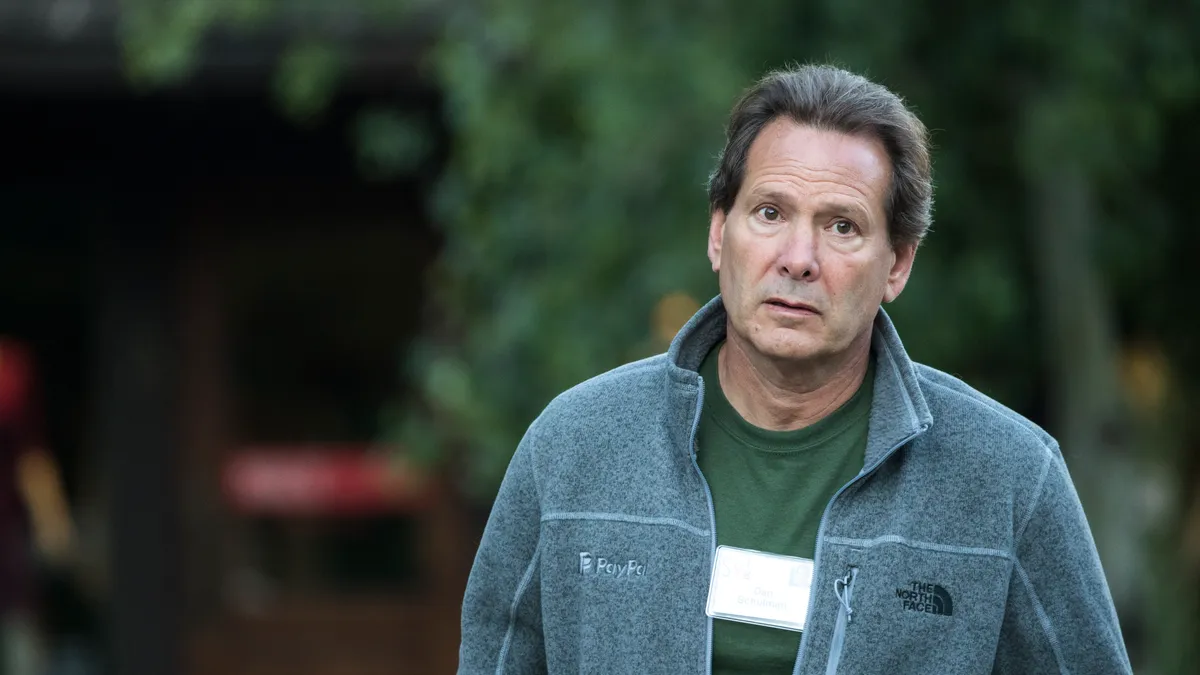PayPal CEO Dan Schulman doesn’t expect the economic environment for e-commerce, a major driver of business for the digital payments company, to improve anytime soon.
Reflecting on the see-saw nature of holiday e-commerce in recent years, he noted at an investor conference this week that year-over-year growth had been in the mid-teens leading up to 2019 and then edged down to 13% that year before jumping to 33% during the COVID-19 pandemic, and then coming in essentially flat this year.
“We all know it's a very difficult macro environment,” Schulman said at the UBS Global TMT Conference on Wednesday. “Honestly, as you go into 2023, there's no reason to think it's going to get better. There's plenty of reason to think it could get slightly worse.”
Schulman also alluded to the recession that economists and bankers have said is a possibility next year. That would be a significant setback for his company and others that depend on payments volume from consumers to drive revenue and profits.
“There's probably more than a fifty percent chance that we go into at least a shallow recession in the first part of the year, so we're planning for muted growth, flat to likely down in terms of e-commerce overall,” Schulman said at the conference.
The challenging forecast has led PayPal and other companies to turn to cost-cutting and workforce reductions to protect their businesses from the downturn.
Schulman said San Jose-based PayPal is ahead of schedule in cutting $900 million in costs this year. While he didn’t detail the worker and spending reductions, the company has been cutting jobs worldwide for months, according to prior news reports. Schulman reiterated that the company is also targeting another $1.3 billion in cost savings for next year.
Retail activity has been more resilient in the U.S. than in Europe, where the United Kingdom has been particularly hard hit by the war in Ukraine, Schulman noted. He blamed Russia’s war in Ukraine for the retail slump in Europe and predicted the conflict will weigh on the sector until the war is over.
“Europe is not in great shape right now — I think the war in Ukraine is going to continue for quite some time,” Schulman predicted. “Until it ends, Europe is going to be under quite a bit of pressure.”
In the meantime, the CEO was open about what his company is trying to do to increase its payments flow despite the economic conditions, and he was blunt about shortcomings.
“There's clear consumer preference to use PayPal online,” Schulman argued, explaining that merchants sell higher volumes and experience less cart abandonment. “However, clearly there's a lot of room for improvement as well and that's why we're investing.”
Schulman explained how the company is seeking to make its payment tools easier for consumers to use by reducing the slowness of the service, making it more widely available at merchants and reducing “friction” in the user experience, partly by eliminating the use of passwords in favor of other identity verification methods.
As part of PayPal’s overarching campaign to draw customers into using more of the company’s online payment tools, it’s also pushing consumer use of the company’s app, he noted.
“The single most important thing we can do is increase engagement on our platform,” Schulman said, referencing the company’s 400 million active consumer accounts. If “you can drive more engagement, naturally, net new actives will follow.”











